BBC Scotland's Nine launches but what about Wales?
- Published
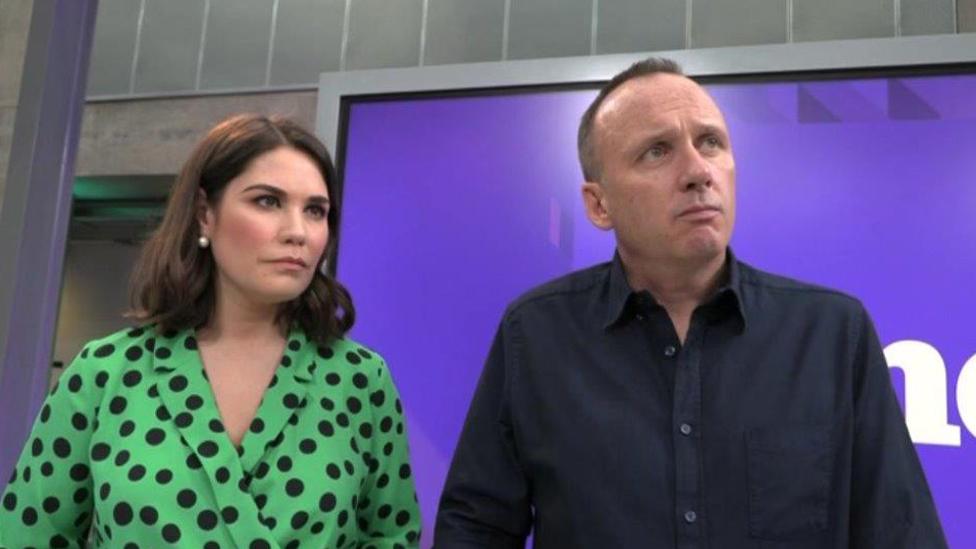
Rebecca Curran and Martin Geissler will present The Nine on BBC Scotland
Watching the news at nine o'clock is a familiar habit for viewers of Welsh TV channel S4C. Within days viewers in Scotland will join them with their own tailor-made news at nine.
The hour-long programme from Monday night will be on the new BBC Scotland channel, presenting news from around the world from a Scottish perspective.
Some in Wales see the developments in Scotland as reason to call again for a similar channel here, although BBC Wales has ruled that out.
I went to Scotland to assess whether the situation really was better for Scottish publishers, producers and audiences.
The journey began in Glasgow, on the set of The Nine. The new programme has been in rehearsals for weeks, and has been having nightly run-throughs ahead of the launch.
While the new BBC Scotland channel starts on Sunday, viewers will have to wait until 21:00 GMT on Monday to see Rebecca Curran and Martin Geissler presenting the first show.
On the programme's open, purple set, Ms Curran explained why Scotland needed the programme.
"So much is happening [in the world] at the moment and I think people do want to tune in and see why it matters to them, as someone living in Scotland. They want to hear more in-depth chat."
Mr Geissler says it will cover stories from Glasgow to Iran but hopes the programme will have a different pace and feel.
"There will be more time to get under the skin of stories, more time for studio discussion, for debate and for films to breathe - not the usual two and half, three minute packages that you see."
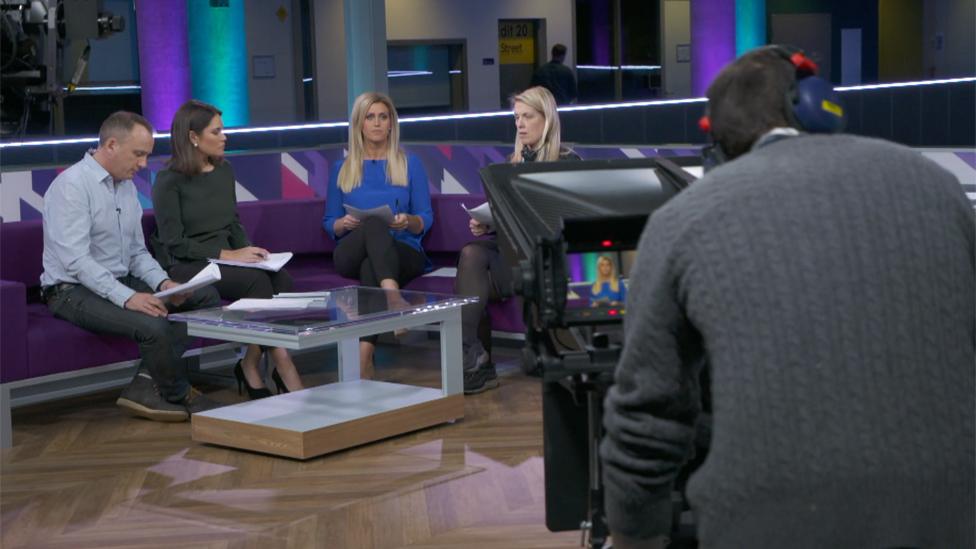
Rebecca Curran and Martin Geissler rehearsing on the set of The Nine
But who will be watching? Some argue there's a healthy appetite for what The Nine will offer.
For years, politicians and campaigners have called for the BBC to change the structure of the six o'clock news on BBC One, in order to create a Scottish Six - an hour of news that blends stories from Scotland, the UK and the world.
The call for this increased after the independence referendum in 2014, when nationalists criticised the BBC's coverage of the campaign.
For some of them, the 9 o'clock programme is a long way from the dream of a structural change to the news on the nation's main channel. The presenters of The Nine acknowledge the scrutiny they'll face.
Ms Curran said: "Obviously there will be a lot of scrutiny.. that's a great thing. All of us in the newsroom will be fiercely impartial, we can't wait to get started on it - we just want people to give us a chance."
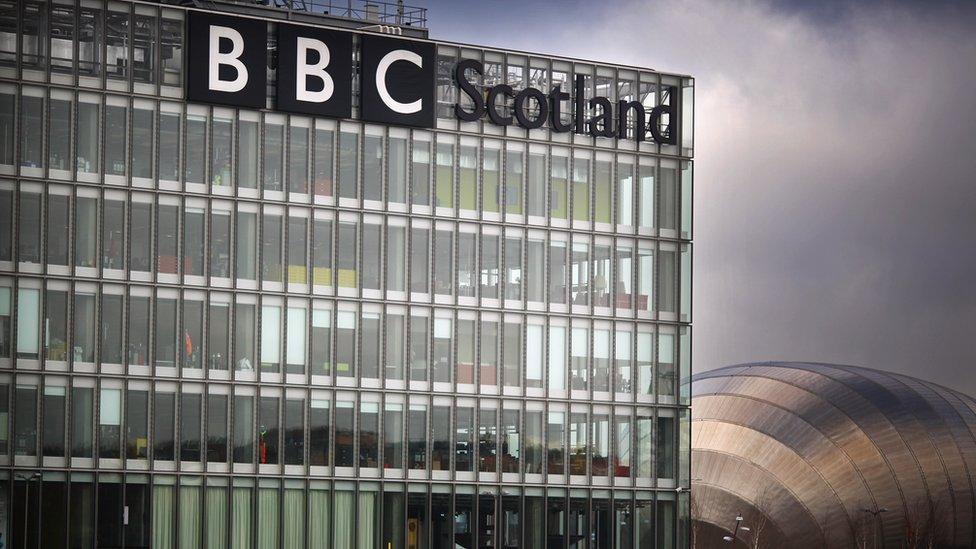
The new channel will cost £32m a year
Writer and broadcaster Lesley Riddoch said it faces challenges, not helped by a "poison chalice" time slot which means it will become the only news programme on a main channel at nine, competing with mainstream entertainment.
"This new programme has got to manage to fend off all the blockbusters - on the BBC as well - to get an audience," she said. "And if it doesn't manage to do that over time, the channel will lose profile and perhaps within three or four years it will look like it was a dud."
"But a lot of us are wishing it well and hoping it will say something stimulating."
In Wales the difference between what the BBC is offering the two countries suddenly seems stark.
Allow X content?
This article contains content provided by X. We ask for your permission before anything is loaded, as they may be using cookies and other technologies. You may want to read X’s cookie policy, external and privacy policy, external before accepting. To view this content choose ‘accept and continue’.
Plaid Cymru assembly member Delyth Jewell, who is also on the culture committee, has drawn attention to criticism by some viewers of the BBC Wales comedy Pitching In.
She said that audiences in Wales "won't understand why Scotland is getting a brand new news programme, while we have to make do with a poor, patronising drama." [Pitching In]
Ms Jewell argues that a lack of understanding among some Welsh voters about devolved politics proved the need for a similar new service from BBC Wales, and that the threat of independence had "ensured additional resources" for Scotland.
Rhodri Talfan Davies, director of BBC Cymru Wales said there was no great audience demand in Wales for a similar channel.
"Scotland is a very different place, politically and socially," he said.
"The second thing was audiences were really clear. They wanted to see big pieces from us, they wanted to see drama and comedy. That costs money.
"We focused on big dramas like Keeping Faith and Hidden, and right at the heart of the BBC One schedule."
"We know in Wales that BBC One is much loved, and we know in Wales that programmes delivered on BBC One go to huge audiences. The decision we took was to put our investment of £10m into programming that wouldn't just be big in Wales but would then be seen by audiences right across the UK."
- Published24 February 2019

- Published28 November 2018
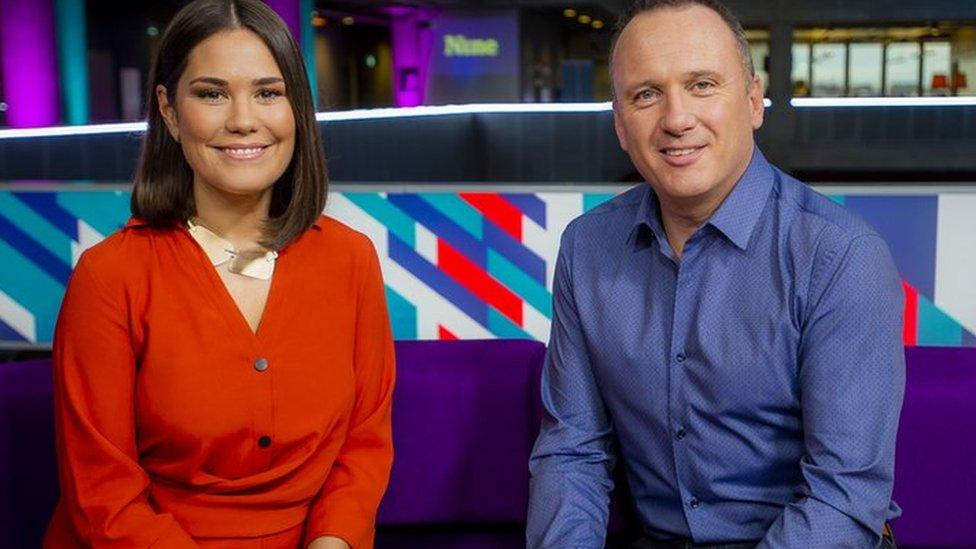
- Published4 February 2019

- Published21 February 2017
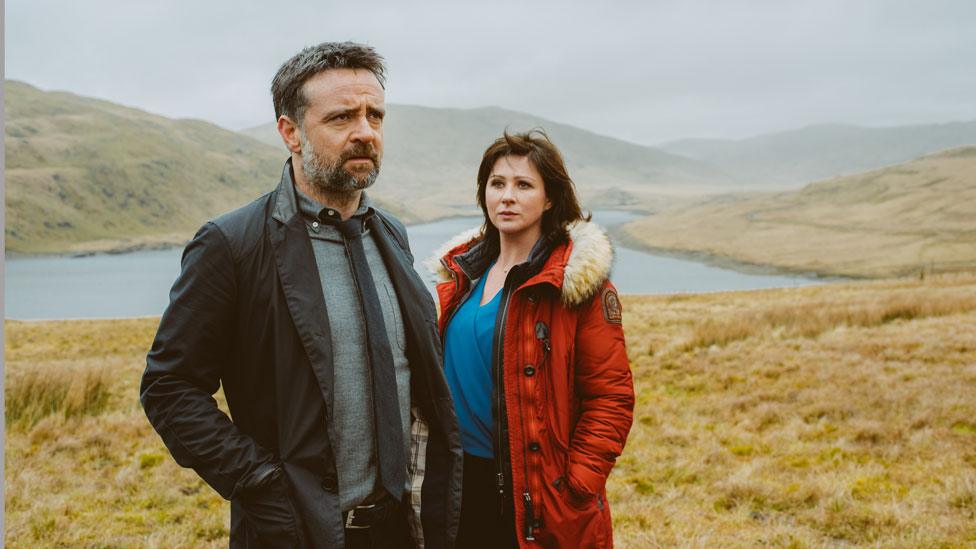
- Published22 November 2018
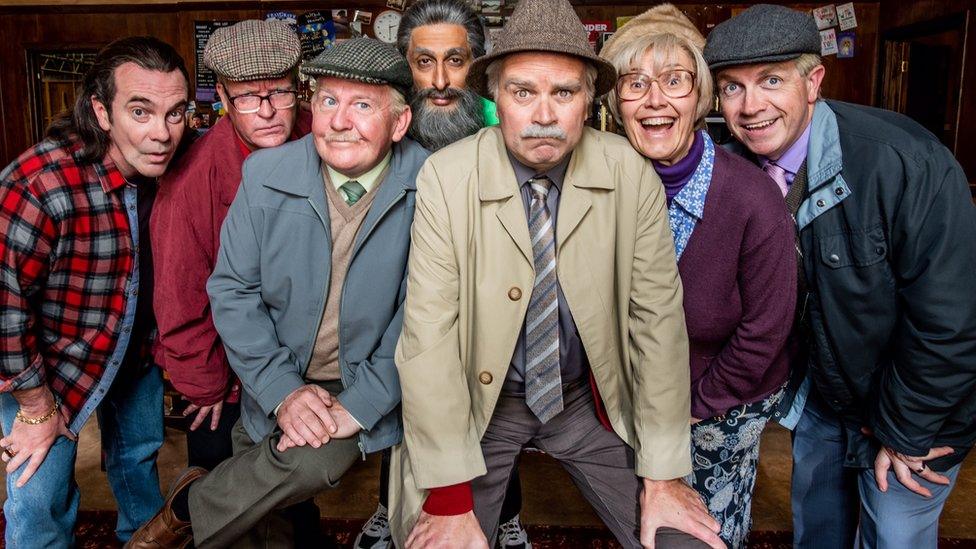
- Published26 June 2018
